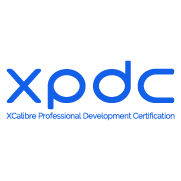| Date | Venue | Fee | |
|---|---|---|---|
| 24 Jun - 28 Jun 2024 | London - UK | $ 5,950 | Register Now |
| 19 Aug - 23 Aug 2024 | Dubai – UAE | $ 4,950 | Register Now |
| 21 Oct - 25 Oct 2024 | Los Angeles - USA | $ 6,950 | Register Now |
| 16 Dec - 20 Dec 2024 | London - UK | $ 5,950 | Register Now |
| 20 Jan - 24 Jan 2025 | Dubai – UAE | $ 4,950 | Register Now |
| 21 Apr - 25 Apr 2025 | Dubai – UAE | $ 4,950 | Register Now |
| 23 Jun - 27 Jun 2025 | London - UK | $ 5,950 | Register Now |
About the Course
Please send an email to info@xcalibretraining.com or call +971564754000 for more information.
Course Enquiry

A XCalibre Professional Development Certification will be given to the delegates upon successful completion of this training course.
